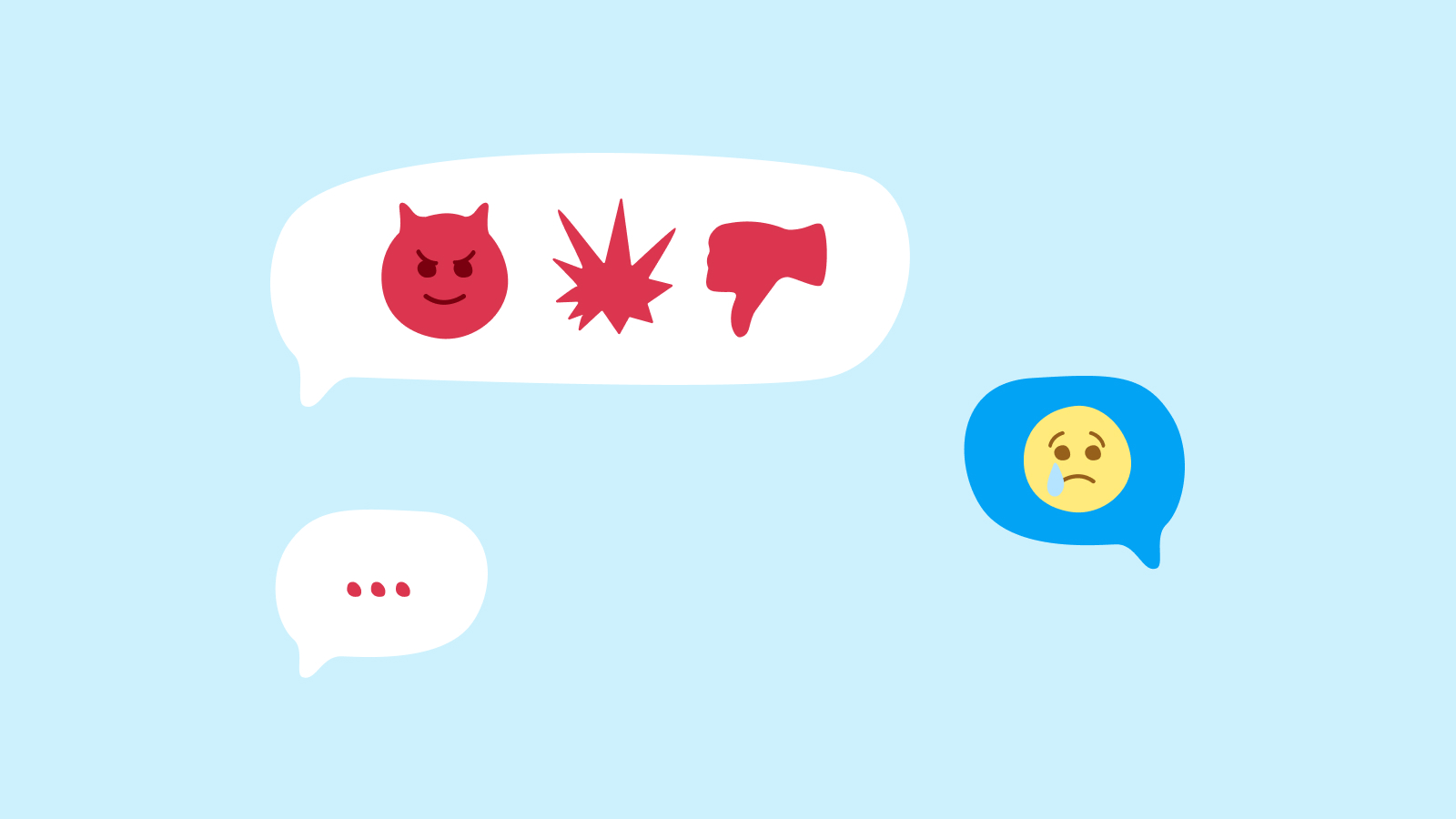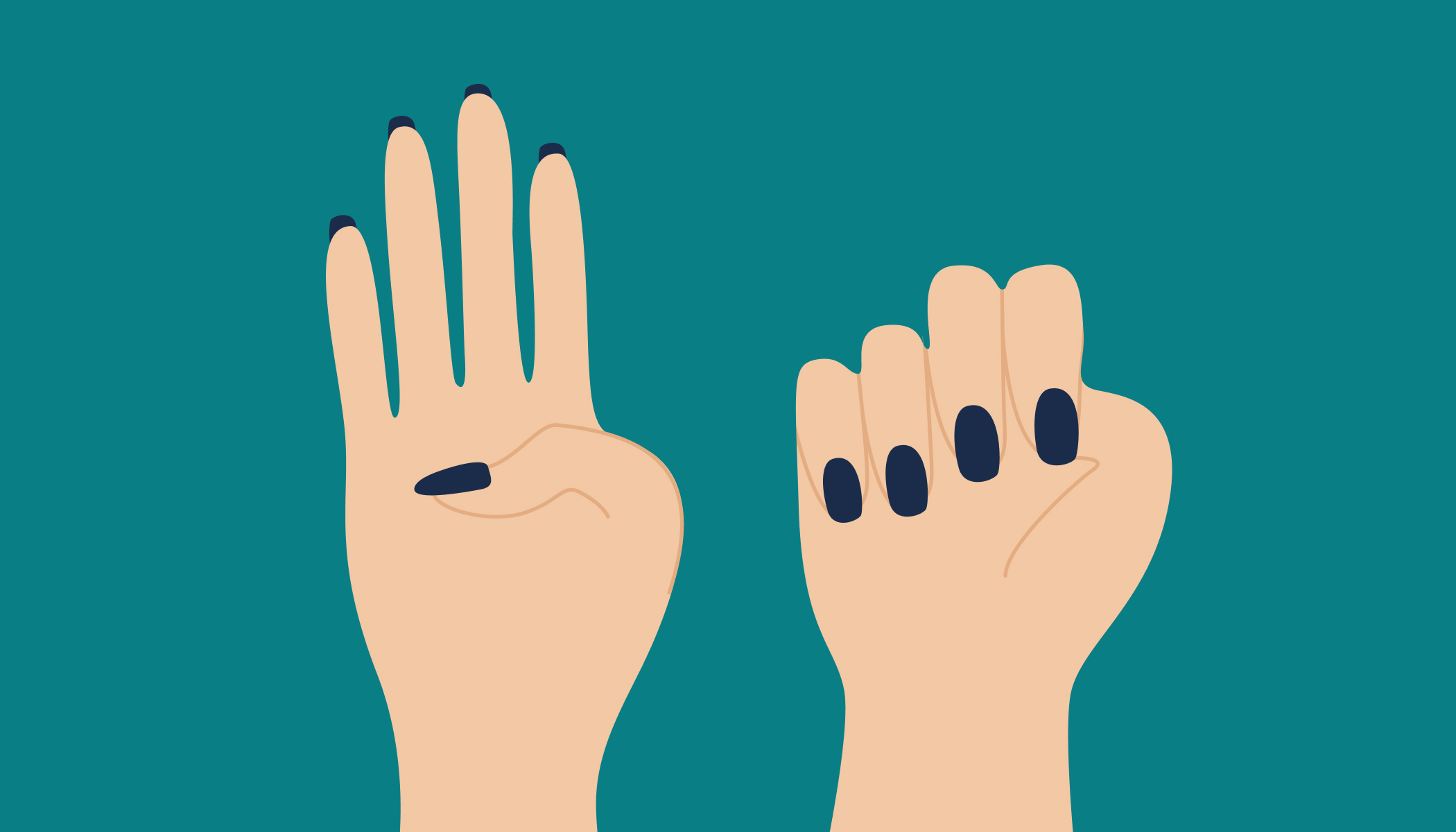Bullying can take place in lots of different ways. Cyberbullying refers to bullying that takes place online, through social networks, gaming sites and other digital platforms.
As most young people tend to take their mobile phones wherever they go, this type of bullying can happen at any time via social networks, gaming and other digital platforms.
As a parent or guardian it can be more difficult to spot but there are ways to support and resources to use to help someone going through cyberbullying.
What are the different types of cyberbullying?
Like offline bullying, cyberbullying can take many different forms. Some of the most common include:
- Threatening or abusive messages
- Shaming someone with embarrassing images or videos
- Excluding someone else from online games, activities or friendship groups
- Sending upsetting messages on social networks, chat rooms or online games (also known as trolling)
- Creating hate groups, polls or sites about someone
- Setting up fake accounts, hijacking or stealing online identities to cause harm or humiliate someone
- Explicit messages or images, or pressuring children and other vulnerable people to engage in sexual conversations online
How has social media affected the rates of cyberbullying?
Having access to the internet and being digitally-savvy has so many benefits. However, with young people spending more time on social media, they’re at greater risk of cyberbullying.
If you or your child has been a victim of cyberbullying, you may want to delete certain social media apps or stay offline to give yourself time to recover. But not using the internet at all isn’t a long-term solution. This is one of the reasons why reporting cyberbullying is so important.
As with any type of bullying and harassment, you don’t need to suffer in silence. Let your family and friends know, seek advice from a responsible adult or teacher, and get support for your mental health from a doctor or therapist.
How can cyberbullying affect someone’s mental health?
When a child or young person experiences cyberbullying, they might start to feel anxious, ashamed and insecure. These feelings can lead to withdrawing from their friends and family, and a cycle of negative thoughts.
Sometimes they may turn to substances like alcohol and drugs to deal with their psychological pain.
As well as impacting their mental health, children and young people can experience physical symptoms as a result of the stress and anxiety, including:
- Headaches
- Stomach ache
- Nausea
How to spot the signs of cyberbullying
Every child and young person responds differently to bullying and there aren’t always clear signs that someone is being bullied online. Here are some indications your child may be affected by cyberbullying:
- Being nervous, less confident, or more distressed and withdrawn
- Being worried about school, skipping school or feeling too unwell for school on a regular basis
- A noticeable change in motivation or performance at school or in their hobbies
- Problems with eating or sleeping
- Bullying or aggressive behaviour towards others
How to help a child with cyberbullying
There are steps we can all take to keep children safe from all forms of bullying. Here are some specific tips on how to support a young victim of cyberbullying, whether they’re your child or a child you know.
1. Talk to them openly about cyberbullying
Whether you think your child might be being bullied or not, it’s good to have open conversations. Explain what bullying and cyberbullying is and how it might make people feel. If a young person admits that they’re experiencing cyberbullying, try to listen carefully – they might be feeling scared, anxious or ashamed. You can talk through how they might like you to help.
2. Let them know who to reach out to for help
Make it clear that they can always talk to you, other family members or a teacher they trust about cyberbullying. There are also charity services available like Childline – a free helpline for children and young people, or EACH – a free helpline for children experiencing homophobic, biphobic or transphobic bullying.
3. Help them take time out from online activities
Bullying and cyberbullying can affect young peoples’ confidence and self-esteem so helping them find things that make them feel good or bring them joy can be a big help – whether that’s taking up a new sport or a new craft.
4. Speak to your child’s teacher or club leader
If your child is being cyberbullied, you can talk to their school, as they have a duty to protect pupils from bullying. It might be helpful to bring any evidence or notes to talk through, and ask for a copy of their anti-bullying policy to refer to. If the bullying continues, the Department for Education can offer support.
5. Report any type of online bullying
There are also practical steps you can take if the bullying is taking place online – like on a social media app or online gaming. Make sure your child knows how to block anyone who posts anything nasty or abusive about them. You can usually find this in the help or online safety area of the platform. You can also report anyone for cyberbullying directly to the social media or gaming platform – whether it’s a comment, image or video.
What support is available for parents & guardians?
If you’re a parent or carer of someone being cyberbullied, you might feel a range of emotions like anger, disappointment or helplessness.
As well as using the advice above to help you cope, there are lots of charities that can provide support for parents including the NSPCC and Think U Know – a site run by The Child Exploitation and Online Protection Centre (CEOP) with resources for young people, parents and guardians about staying safe online.
If you find out your child has been involved in cyberbullying or done something to hurt someone else, you’re also likely to feel lots of strong emotions.
Children and young people don’t always realise that their actions or behaviour are a form of bullying, or understand the impact they’re having on someone else. A good way to help them understand the effects of their actions is by clearly explaining why bullying is unacceptable.
When to seek medical help
It can be hard to know who to turn to if your child is a victim of cyberbullying.
If your child is struggling with their mental or physical health, speak to a GP or therapist who can advise you further on the available support they may need.
This article has been medically approved by Dr Adenekan Oyefeso, Psychologist and Clinical Lead for Mental Health at Livi.


